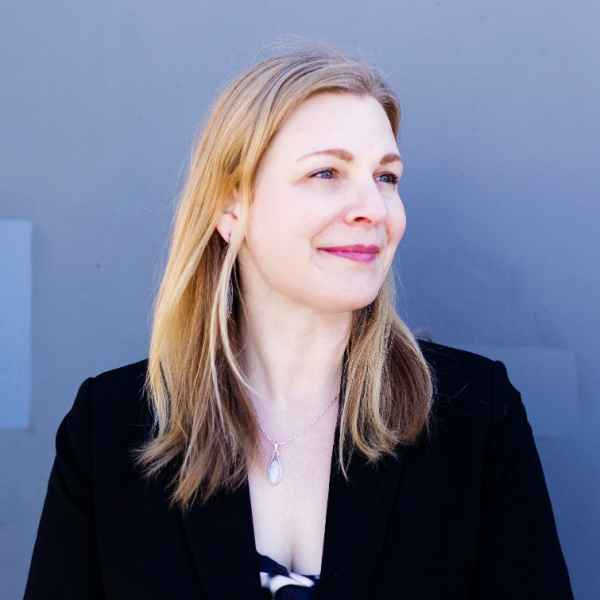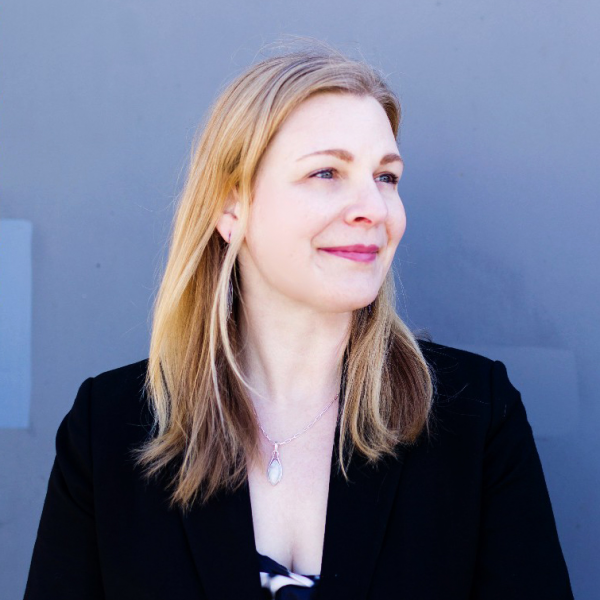Some women go through menopause significantly earlier than the average age of 51. When it occurs before age 45, it is considered “early” and before the age of 40 “premature.” Aside from relief that comes with never having to buy feminine products again, early and premature menopause comes with an increased risk for certain health conditions, including osteoporosis, cardiovascular disease and premature death. These risks increase with an earlier age at the time of menopause.
All of this can sound terrifying to a woman whose menopause has come early… is this a death sentence? Are they destined to die young and unhealthy?
 Not at all, says Buck Assistant Professor Jennifer Garrison, PhD, whose research is dedicated to discovering strategies to prevent or delay ovarian aging.
Not at all, says Buck Assistant Professor Jennifer Garrison, PhD, whose research is dedicated to discovering strategies to prevent or delay ovarian aging.
“Early menopause doesn’t mean you are going to die young!” she emphasizes. “And it doesn’t mean that your healthspan can’t be as long and as rich as someone who goes through menopause later.”
To sort through some of the seemingly conflicting information, she explains that the risk increase is a statistic based on data sets. It is an average, based on a large number of women. “It is definitely not speaking to an individual,” she says. “It is just a correlation; it does not mean causality.”
It is, however, an interesting correlation, one that Garrison is exploring.
Early menopause really just means that the ovaries have aged prematurely. If researchers could understand the underlying mechanism of why this occurs in some women, she says it would open a window into understanding ovarian function and the process of aging in general. “That applies to men, too,” she adds.
“As we gain knowledge about how the system works, we will understand how to keep it healthy,” she says. There may be lots of potential future interventions available depending on individual genetics, environmental exposures, risk factors, and age. Women in their 20s could do things to ensure a long healthspan, for example, which would be different from what would be available to women in their 30s who are thinking about fertility. Women going through perimenopause and who have already gone through menopause would have their own unique options.
“My goal in getting at these underlying mechanisms is not that we are going to have a single magic bullet that will fix everybody or end menopause,” she says. “I do hope at some point menopause might be optional, in that it might be a choice whether or not you want to let your ovaries stop working, at least with respect to the health-promoting functions.”
Until the future offers these many interventions, is there anything a woman can do for now?
First, says Garrison, it is important to remember that menopause is not a disease; it happens to every woman who reaches midlife.
“Ovaries are not just for baby-making,” she says. “Of course they are essential for that, but they are important for so much more.” Ovaries make lots of hormones, including the “big three”: estrogen, progesterone, and testosterone -which can signal to almost every tissue in the female body. “These signals promote general health,” she says. “I think of the ovaries as the architects of health in female bodies.”
When the ovaries stop producing hormones at the same rate, those health-promoting benefits disappear. “Menopause is not a disease. Rather, it uncovers a whole host of risk factors that are unique among individuals,” she says. “This is true no matter what age a woman is – in young women ovarian dysfunction uncovers risk for disorders like PCOS, and in mid-life ovarian dysfunction uncovers these other health risks.”
To reduce the risks, the tried-and-true diet and lifestyle advice applies: eat well and exercise more. Supplement with calcium and vitamin D when needed to offset the risk of osteoporosis. Don’t smoke.
A look to other cultures for insight into the lasting effects of an earlier menopause
Strengthening the case for the impact that diet and exercise can have on the health risks accompanying menopause, Buck Senior Scientist Deena Emera, PhD, notes that Mayan women experience menopause differently than the women of industrialized nations. Mayan women undergo menopause on average in their mid 40s, but their menopausal transition is not accompanied by hot flashes or other symptoms. “Even though their estrogen levels drop after menopause and their bone mineral density declines, they don’t experience more bone fractures,” says Emera, who recently published a book, A Brief History of the Female Body. A drastically different diet and lifestyle might explain these cultural differences in the menopause experience. “These women seem to be living more like our ancestors and could provide clues about how to navigate the post-menopausal years optimally,” she says. “Studies like this show that there are ways to mitigate the health risks in everyday life.”
Garrison, who emphasizes that she is a PhD scientist and not a physician, has some advice based on her own knowledge and experience. “Find a doctor who really listens to you, who understands and can take care of women at your life stage,” she says. “I spend a lot of time doing my own research and educating my doctors.”
Garrison notes that emerging findings (published here and written about here) have piqued her interest in long-term use of hormone therapy, rather than for only a few months or years.
“If the data hold up and are repeated in large scale studies, then this is very strong evidence that hormone therapy is truly the best band aid we have right now to combat the health risks associated with menopause, both early or natural,” she says.
“Arm yourself with as much information as possible and understand your own physiology so that you can move forward in the best way possible.”


Excellent blog here Also your website loads up very fast What web host are you using Can I get your affiliate link to your host I wish my web site loaded up as quickly as yours lol